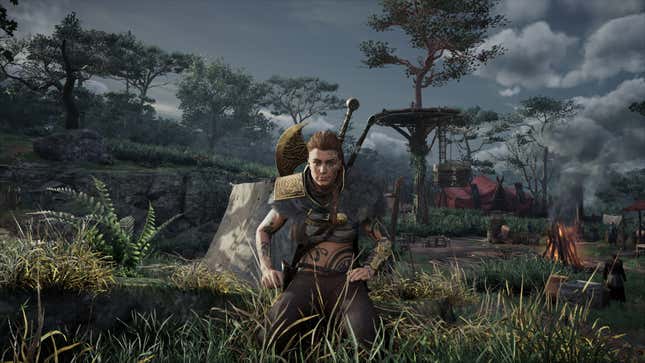
It’s Backlog Month at Kotaku, which means we’re spilling a lot of ink on a plight shared by basically everyone who plays games. But this got us wondering: What defines a backlog? At what point does a game jump from being anything else in your library to being a (likely permanent) fixture on your ever-growing list of things you’ll “get to someday”?
Here are the ground rules for such matters. Some people might be inclined to say they’re “flexible” or “up for debate” or a “total gray area, dude,” but those people are dead wrong. These rules are written in stone. So it is said. So it shall be.
You bought it on sale: It’s in your backlog. Doesn’t matter when you bought it. Doesn’t matter how marked down it was. If you picked up a game on sale, it automatically goes into your backlog.
It was a gift: Not in your backlog. Ultimately, your backlog is something you and you alone have control over. If someone gifted you a game—even at your behest—you’re absolved of all responsibility. Go forth and ignore Assassin’s Creed: The Ezio Collection with a clear conscience. (But also, play Assassin’s Creed II. It rules.)
You’re partway through but haven’t played in a while: Look. Life happens. You walk away from a game. You don’t snag a moment to get back to it. Or you hit a stretch of emotionally draining days, and all you want to do is fall back on some comfort-food gaming, so you leave Aloy languishing in Devil’s Thirst for months. It’s impossible to apply a broadly applicable figure to matters of life and scheduling, so allow us to offer some broad guidance instead: If a game feels like homework—if it’s something that stirs the base desire of procrastination, and you’ve given in to that urge for months—it’s on your backlog.
It’s less than a month old: Not in your backlog. Generously, non-service games release and then stick in the zeitgeist for three, maybe four weeks, whereupon chatter is then relegated to fans, niche sites, and subreddits. But for that first month, there’s a grace period.
You’re replaying an old game: Unless you’re playing a game with multiple narrative outcomes—Nier: Automata, The Witcher 3, Quantum Break—that you’re running through again to see it all, replaying an old game just for kicks precludes it from backlog status.
You’re playing a remake or remaster of an older game: Backlog. (No, we’re not just saying this to justify powering through the potentially 150-hour Mass Effect: Legendary Edition “for work.”)
You’ve restarted, and restarted, and restarted, and restarted: Lift a lesson from that song in that Disney movie and let it goooooo.
It takes up 5 percent (or more) of your internal storage: For reasons of Math Is Hard, we’ve calculated this figure based on the size of the internal storage disc (i.e., the number on the box). In other words, even though you can only store up to 802 GB of games on an Xbox Series X, the console itself has a 1 TB solid-state drive (SSD) built in, so the backlog threshold here would be a game that’s 50 GB or larger. On the PlayStation 5, which has an 825 GB SSD, the threshold is 41.25 GB. Meanwhile, the diminutive Xbox Series S (512 GB) has a threshold of 25.6 GB, while base last-gen consoles (500 GB) are set at 25 GB—a paltry figure in 2021. In other words, no matter how you slice it, if you haven’t finished Final Fantasy VII Remake or Gears 5 by now, they’re on your backlog.
You got it from Game Pass, PS Now, or the library of another games-on-demand service: These services boast a certain allure: You can try out games you’d otherwise not try, so it’s not really fair to say that games sourced as a result are automatically tossed into your backlog. Of course, if you download Outriders and spend a weekend shooting, looting, and listening to bad one-liners before falling back on Destiny strikes, well…
It’s a service game: Backlog. Forever. There is no escape.
More From The Backlog
Service Games Like Genshin Impact and Destiny Are A Backlog Nightmare
Maybe Your ‘Pile Of Shame’ Is A Problem